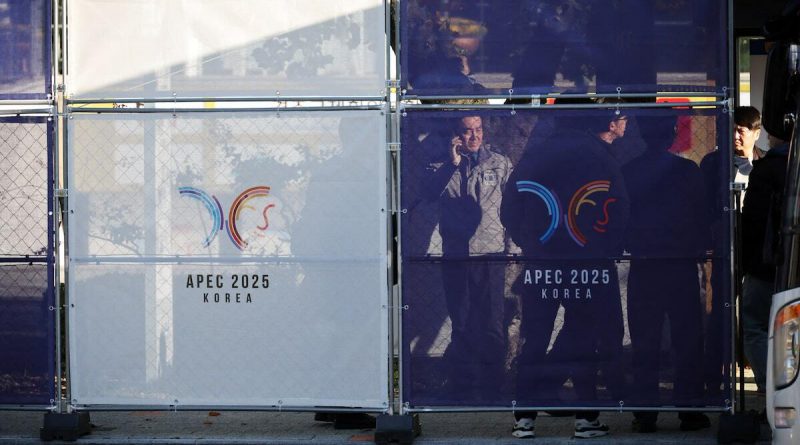APEC Summit in South Korea moves toward unity as member nations near breakthrough on trade and cooperation
Gyeongju – The Asia-Pacific Economic Cooperation (APEC) Summit in South Korea is showing promising signs of unity and collaboration, as member nations move closer to reaching a consensus on a joint declaration that could strengthen regional cooperation, economic integration, and sustainable growth across the Asia-Pacific region.
South Korea, hosting the 2025 APEC Summit in the historic city of Gyeongju, has played a key role in guiding discussions among the 21 member economies that together account for half of global trade and over 60 percent of the world’s GDP.
The atmosphere at this year’s summit has been notably constructive, with leaders and ministers emphasizing mutual understanding, economic stability, and the shared goal of maintaining open and fair trade systems.
During a press briefing, South Korean Foreign Minister Cho Hyun expressed optimism about the progress being made in finalizing the joint declaration.
“We are very close to reaching a consensus,” Cho said, noting that talks on both the ministerial statement and the leaders’ declaration have been productive and forward-looking.
He added that South Korea is confident the agreements will reflect a shared commitment to cooperation, inclusivity, and sustainable economic development.
The summit’s discussions have revolved around key global challenges, including the need to rebuild trust in multilateral trade systems, stabilize global supply chains, and address the economic impact of protectionist trends.
Despite differing national interests, most APEC members have agreed on the importance of strengthening multilateralism and maintaining open channels for trade and investment.
South Korea’s Minister for Trade, Yeo Han-koo, highlighted that the nation supports a global system based on fairness and inclusivity.
“It is in line with our interest for the world’s leading economies to find balance and stabilize supply chains and trade relationships,” Yeo said, referring to the significance of strong ties between the United States, China, and other Asia-Pacific partners.
This year’s summit also emphasized innovation, digital transformation, and green growth as essential pillars for the region’s future prosperity. South Korea, known for its technological leadership, has encouraged other member economies to embrace digitalization as a pathway toward resilient and diversified trade.
Discussions also touched upon the need for regional cooperation in areas such as clean energy, sustainable infrastructure, and inclusive development, ensuring that smaller and developing economies can benefit from the shared growth of the Asia-Pacific region.
The APEC forum has faced challenges in recent years, including rising trade tensions and disruptions to global supply chains. However, this year’s summit has demonstrated a renewed spirit of collaboration.
Member countries expressed a collective determination to restore confidence in multilateral cooperation and ensure that global economic policies promote mutual benefit rather than division.
Foreign Minister Cho emphasized that tariffs and trade barriers were not the only obstacles to global growth. “We are facing complex challenges in global value chains, technological transitions, and equitable access to resources,” he said.
“APEC has an opportunity to address these challenges collectively and establish a roadmap that benefits all its members.”
South Korea’s hosting of the APEC Summit has been widely viewed as a diplomatic success, reflecting its growing leadership role in fostering regional stability and dialogue.
The event also provided opportunities for bilateral meetings, where leaders discussed initiatives in trade, energy, innovation, and infrastructure.
While some high-profile leaders departed before the final day, the momentum of the summit continued under South Korea’s careful facilitation.
The country’s emphasis on balance, inclusivity, and pragmatic cooperation helped maintain a positive tone and encouraged nations to align their economic strategies for shared progress.
As the summit concludes, expectations are high that APEC’s forthcoming joint declaration will reaffirm the members’ commitment to an open, rules-based international trading system and sustainable economic development.
It is seen as a strong step toward restoring confidence in regional partnerships and ensuring that the Asia-Pacific remains a driver of global growth and innovation.



